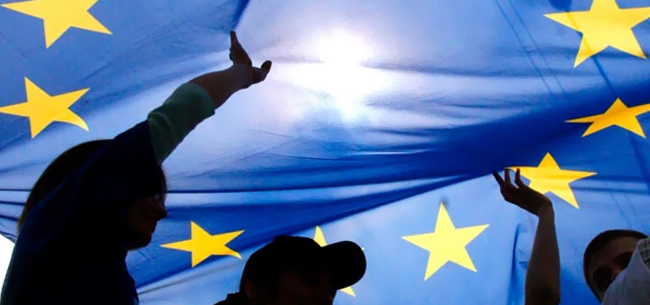Britain has voted to leave the European Union: according to official data, 51.9% of voters backed Brexit, while the turnout was 72.2%. In total, the referendum was attended by more than 33.5 million people. The conclusion of this decision should be a profound democratic renewal of the European Union, Berlin political scientist, Heiko Langner, said in an interview with a correspondent of Vestnik Kavkaza.
- What are the consequences of the outcome of the British referendum?
- A narrow majority of votes were cast in favor of the UK leaving the EU. This was decided by a democratic referendum, and it must be respected. The conclusion of this decision should be a profound democratic renewal of the European Union. The EU in its present form represents, above all, the neoliberal project of economic and technocratic elites. If the EU wants to have a future, it must develop itself into a democratic European civil union. This includes the social equation of economic development with the maximum participation of the population in the economic well-being within the EU; pan-European minimum social standards for effective protection against poverty and social exclusion; binding of technological progress to a sustainable protection of the environment; a peaceful foreign policy which stands for political solutions to the existing conflicts and calling for disarmament. The EU should find itself again – to turn it right side up again, so to speak. The total implementation of the practice of people's voting in the EU would be a good opportunity to regain the trust of citizens in the EU. Otherwise, the right-wing populist forces, which respond to social problems with nationalist isolationism, kindling fears and prejudices, xenophobia and racism, while not putting into question the very foundation of the actual problem – neoliberalism, will strengthen in the future in Europe.

- How can it affect the EU's relations with the countries of the former Soviet Union?
- The required democratic reformatting of the EU also affects its neighborhood policy with the post-Soviet transformation countries. The purpose of the Eastern Partnership shouldn't impose its own model of a political and economic system as a condition of admission of the partner countries to its internal market. Instead, equal treaties, taking into account the specific conditions of post-Soviet transformation countries and respecting their right to self-development, should be concluded. Market relations should be shaped by political means. If this happens on an equal footing, and thereby it benefits the population and the internal economic development of partner countries, ultimately, both sides will benefit.






